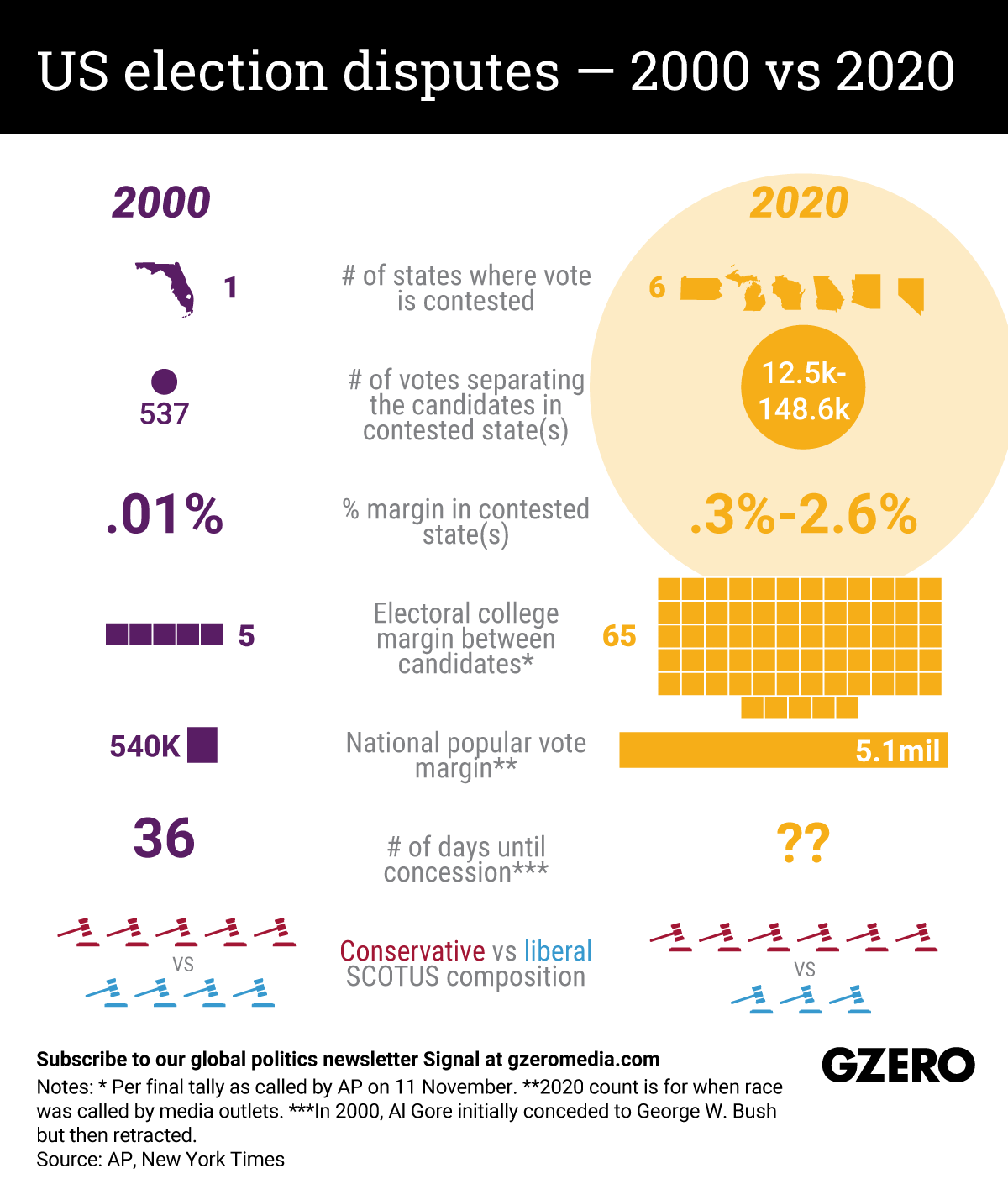November 11, 2020
Does a disputed US election feel familiar? Twenty years ago, Americans waited more than a month to know if Al Gore or George W. Bush had won the presidential election. Bush finally prevailed after a Supreme Court ruling stopped a recount in Florida that many believe would have given the state (and overall victory) to Gore, who won the popular vote. But the 2000 election dispute was over just one state, where the margin of votes was minuscule, and Gore graciously conceded when it was all over. In 2020, the situation is very different: President Trump — who has lost according to the major news organizations that traditionally call the race — is suing over mostly baseless claims of electoral fraud in multiple states with much larger margins in favor of President-elect Joe Biden, whom Trump trails in the popular vote by more than 5 million ballots. We take a look back and compare the numbers in both of the disputed US elections.
More For You
- YouTube
For many in Iran, it’s a waiting game for how long Ayatollah Khamenei has left to live.
Most Popular
An army soldier stands guard at a post at the Friendship Gate, following exchanges of fire between Pakistan and Afghanistan forces, at the border crossing between the two countries in Chaman, Pakistan February 27, 2026. Picture taken with a mobile phone.
REUTERS/Abdul Khaliq Achakzai
In a 30-minute call on Thursday, President Donald Trump reportedly told Ukrainian President Volodymyr Zelensky he wants to end the war with Russia as soon as possible — aiming for a deal by summer, but ideally within weeks.
Former British ambassador to the U.S. Peter Mandelson leaves his residence after he was released following his arrest by London police on Monday on suspicion of misconduct in public office, following the release of U.S. Justice Department files linked to the late financier and convicted sex offender Jeffrey Epstein, in London, Britain, February 26, 2026.
REUTERS/Toby Melville
The ghost of Jeffrey Epstein continues to haunt the world.
Think you know what's going on around the world? Here's your chance to prove it.
© 2025 GZERO Media. All Rights Reserved | A Eurasia Group media company.
